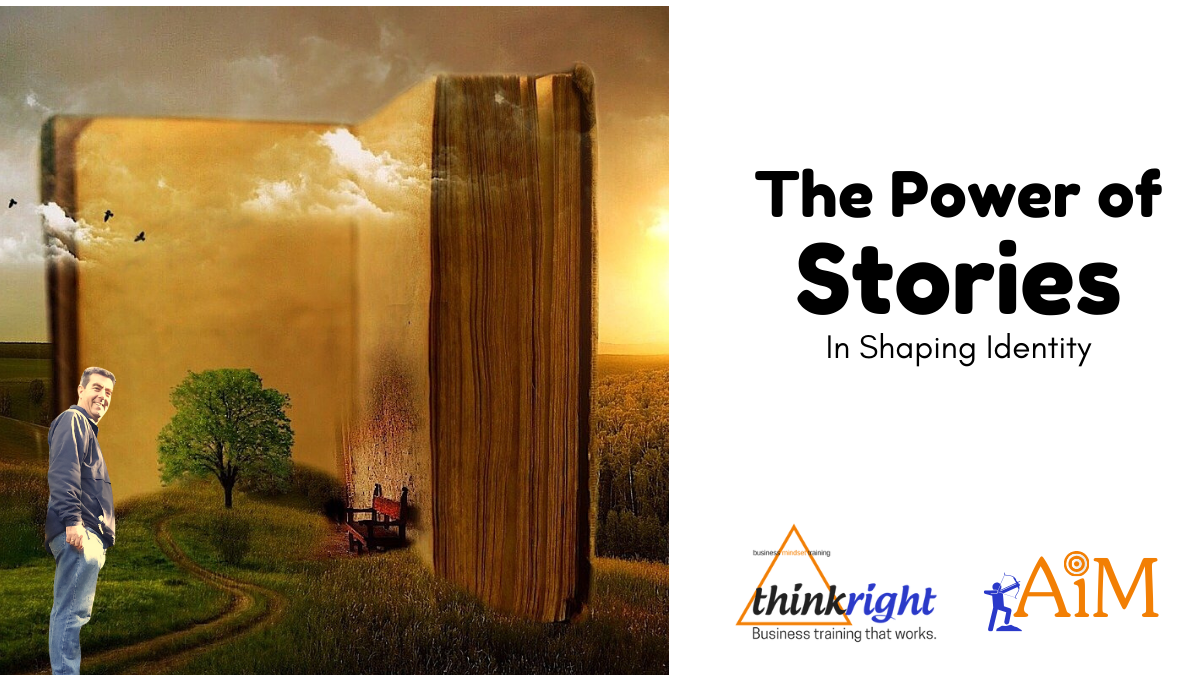The Power Of Stories
Your identity has two foundational elements. The first is your preconceptions and conditioning. Many people never question the ‘rules’ they have been told life runs by. The classic example is people who “knew” the world was flat and that you could sail off the end of the earth. You have similar rules and understanding about life. It is likely a number of them are not actually true but constructs of your community, culture, family, upbringing and education. I have experienced examples of people who were brought up being told things like, “money does not grow on trees” and this creating in them an underlying scarcity mindset.
I am Zimbabwean by birth. Growing up the Police Force and military were more focused on maintaining the will of the government, by any necessary means, than maintaining law and order. I grew up with a distrust of government authority and an instinctive suspicion and wariness whenever I encountered them. Two incidents highlighted to me the power of conditioning.
The first incident occurred a few months after arriving in New Zealand. We were stopped at a routine police roadblock to check licences. My young son started panicking. I knew why. In Zimbabwe, police road blocks were inevitably coercive and stressful. Nothing happened. New Zealand has a “Police Service'' focused on serving and helping. My son's reaction has long stuck in my mind.
A decade later I was to experience a very similar reaction. I went to speak at a conference in Chicago. We passed through LA airport and my wife asked me what was wrong with me. She commented that she had never seen me so on edge and apprehensive in all our time together. I realised that my reaction was caused by my perception of the LA airport officials. They were wearing openly displayed guns and barking instructions at people, with no apparent regard for their personhood. They seemed to just want you to do as you were told and follow their rules. It took considerable will power to relax and I felt noticeably relieved to be out of the airport.
Conditioning takes work to uncover and overcome. You have to look for the root cause and replace your “rules” with ones that serve you well. These “rules of life” can be ones you were taught from your influential relationships as you grew up or a learnt ‘life lesson’ that might not apply in your current life circumstances.
The second foundational element of mindset is created, formed and shaped from the stories you tell yourself and/or the stories and information you take in. Stories, told often enough, become a truth to us. This ‘truth’ then forms into our belief set – what we believe and hold to be true in our world. When we believe something strongly, we can end up creating values around that. These factors combine to create our identity - the mental picture we have of who we are. People want to be authentic and remain true to themselves. This ‘truth’ rests on the foundation of our mental self perception and image. It is how we see and regard ourselves. Changing this is not easy. People guard their beliefs, values, and identity. Change then, usually, needs to trickle down through new information that is accepted and believed. The easiest way to do this is to change the stories that you feed yourself. When you change the stories you feed yourself, it has a domino effect (albeit sometimes a slow one) that can eventually lead to you changing your identity. Are you consistently behaving in a way that resonates with who you are? If you find yourself wishing you would do some things differently then look for the stories you tell yourself to justify your current actions. Are you crafting an identity that will serve you well? If not, what stories need to change?


